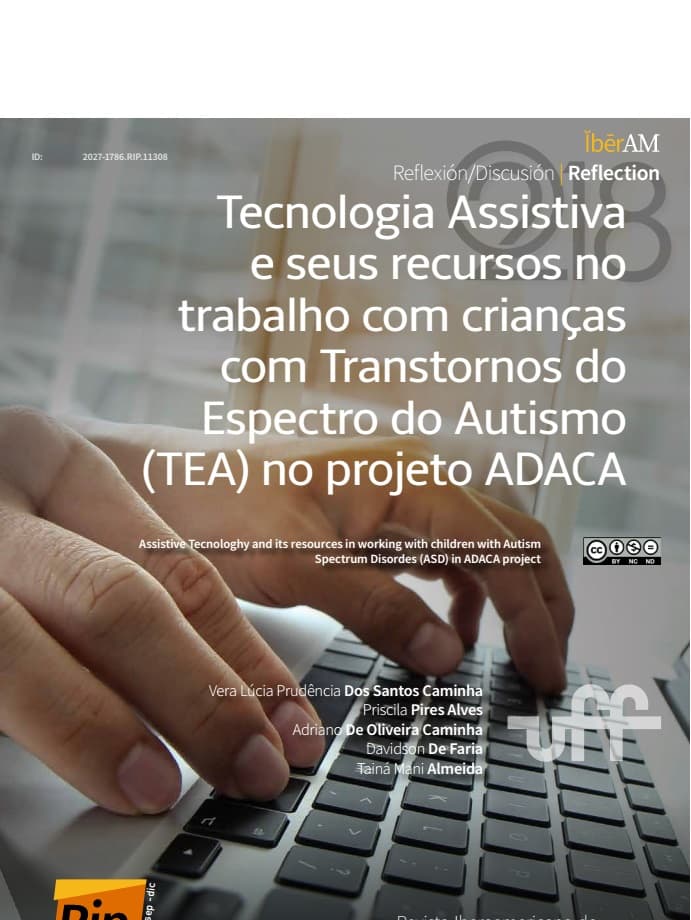Assistive Technology and its resources do not work with children with disorders of the Autism Spectrum (TEA) I do not project ADACA
Tecnología de asistencia y sus recursos no funcionan con niños con trastornos del espectro autista (TEA) No proyecto ADACA
Main Article Content
Abstract
Studies involving the relationship between the person with Autism Spectrum Disorder (ASD) and Assistive Technologies are still incipient in what concerns the devices that favor the development of alternative autistic communication. To do so, identifying specific learning needs for this type of disability requires the development of studies and research that facilitate the establishment of such communication and enable the inclusion of these people in their teaching-learning relationship. The Digital Learning Environment for Autistic Children - ADACA, is a research and extension project being carried out at the Federal University
of Fluminense (UFF), where computational tools are developed with the objective of assisting the learning of children with autism, contributing to the inclusion of these children. The TEA consists of a disturbance that includes the commitment in the areas related to communication, interaction and symbolic actions. In addition, it compromises the general behavior and neuropsychological development of the person with ASD. In this sense, the ADACA project team has been developing free educational games and activities for different computing platforms. Games and educational activities are tested and analyzed by children
with autism in LADACA (Laboratory of the Digital Learning Environment for Autistic Children), which is divided into three environments (Play, Computation and Management). Games and applications for mobile devices have also been developed to be used wherever the child is. It is an interdisciplinary project involving the areas of Computer Science, Speech-Language Pathology and Psychology and the development of learning, generating data to think about intervention strategies and action with people with ASD that favor their interaction and development with skills and competences that concern you.
of Fluminense (UFF), where computational tools are developed with the objective of assisting the learning of children with autism, contributing to the inclusion of these children. The TEA consists of a disturbance that includes the commitment in the areas related to communication, interaction and symbolic actions. In addition, it compromises the general behavior and neuropsychological development of the person with ASD. In this sense, the ADACA project team has been developing free educational games and activities for different computing platforms. Games and educational activities are tested and analyzed by children
with autism in LADACA (Laboratory of the Digital Learning Environment for Autistic Children), which is divided into three environments (Play, Computation and Management). Games and applications for mobile devices have also been developed to be used wherever the child is. It is an interdisciplinary project involving the areas of Computer Science, Speech-Language Pathology and Psychology and the development of learning, generating data to think about intervention strategies and action with people with ASD that favor their interaction and development with skills and competences that concern you.
Keywords:
Downloads
Download data is not yet available.
Publication Facts
Metric
This article
Other articles
Peer reviewers
3
2.4
Reviewer profiles N/A
Author statements
Author statements
This article
Other articles
Data availability
N/A
16%
External funding
No
32%
Competing interests
N/A
11%
Metric
This journal
Other journals
Articles accepted
65%
33%
Days to publication
100
145
- Academic society
- Bogotá: Corporación Universitaria Iberoamericana
- Publisher
- Bogotá: Corporación Universitaria Iberoamericana












